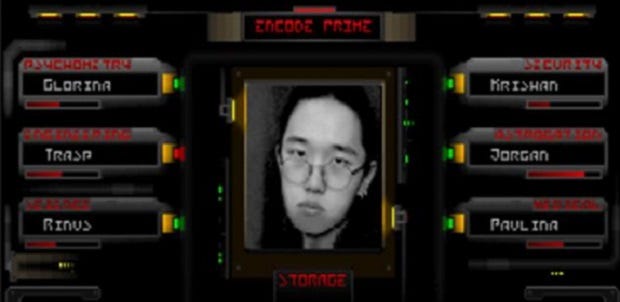Have You Played... Iron Seed?
Star trek to the outer limits
Have You Played? is an endless stream of game retrospectives. One a day, every day of the year, perhaps for all time.
I didn't play any of the Star Control games when they first came out so when I first discovered the second in the series, years after release, it reminded me of Iron Seed. For most people, the situation was probably reversed, 1994's Iron Seed being vaguely reminiscent of 1992's Star Control 2. For me, Iron Seed was part of the same family that contained Captain Blood though: weird, trippy sci-fi that blew my tiny mind.
From afar, Iron Seed doesn't even seem particularly strange. It's an ambitious game, and one of those too-often-forgotten nineties titles that was so ahead of its time we'd be happy to welcome it into the fold today. At a basic level, it's a space exploration game, with diplomacy, trading and combat. You control a single ship and must build your resources and equipment as you prepare for a final battle on the homeworld of the galaxy's antagonists, The Scavengers. It's a little bit Space Rangers, a little bit Star Control and just a teensy bit FTL.
Except almost everything about the visuals and the world-building is just off-kilter enough to make you go 'eh?' or 'oohhh' or 'aarrgh'. This is a far-future setting in which Earth hasn't just been worn down into a decrepit state, but is so incredibly fucked that nobody speaks of it without shuddering. Your crew can't shudder though. That's because their bodies were torn off them before they signed up, and their personalities and intellect have been encoded into various parts of the ship. Essentially, you're controlling a bunch of ghosts in the machine, and the machine, your ship, might be hundreds of thousands of years out from its starting point when the game begins, deep in the unknown.
Iron Seed is one of a trio of games that I loved but never fully understood in my teenage years. Captain Blood, already mentioned, is another. The final one was MissionForce: CyberStorm, which involved artificial humans controlling mechs. I was unnerved by those BioDerms, which Wikipedia describes as follows:
The player's soldiers are "BioDerms," or artificially created humanoids, designed to pilot the HERC war machines. The BioDerms are supposedly used because of their genetically engineered reflexes, their ability to be directly "linked" to the HERCs, and their obedience. The instructions and early parts of the game indicate that these BioDerms are sub-human, more like trained dogs, but later communiques show that they are intelligent, can think independently (and even rebel), and even think of one model as a "messiah." Thus, the BioDerms are actually slaves: disposable humanoids to be used on the battlefield, and "recycled" for a few credits or blown up in kamikaze attacks by corporate officers when they are no longer useful.
Not what I expected when I bought a tactical combat game with awesome mechs.
Iron Seed was similar in that I bought it because I thought it would be like Elite but with a more strategic angle, and back then the idea of random planets making up the galaxy seemed very exciting indeed. I didn't expect to be controlling a haunted vessel, powered by the remnants of rogues and scoundrels, in a distant quadrant of space where every species was being slowly assimilated.
It's changing world, which never seemed to stand still even when my own progress stalled, seemed extraordinary and I wish I could buy a digital copy to explore the outer limits one more time. The developers have made the source code, and other resources, available, but you'll need Borland Pascal to compile it.
